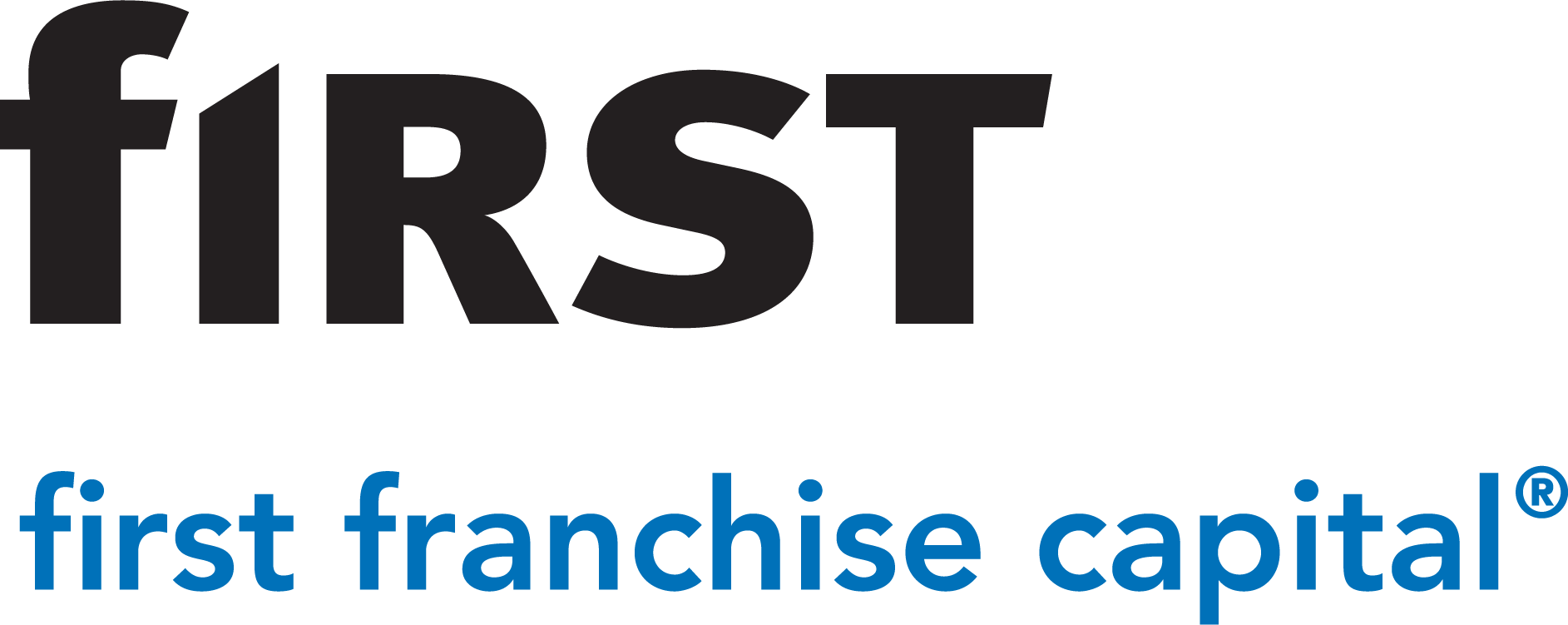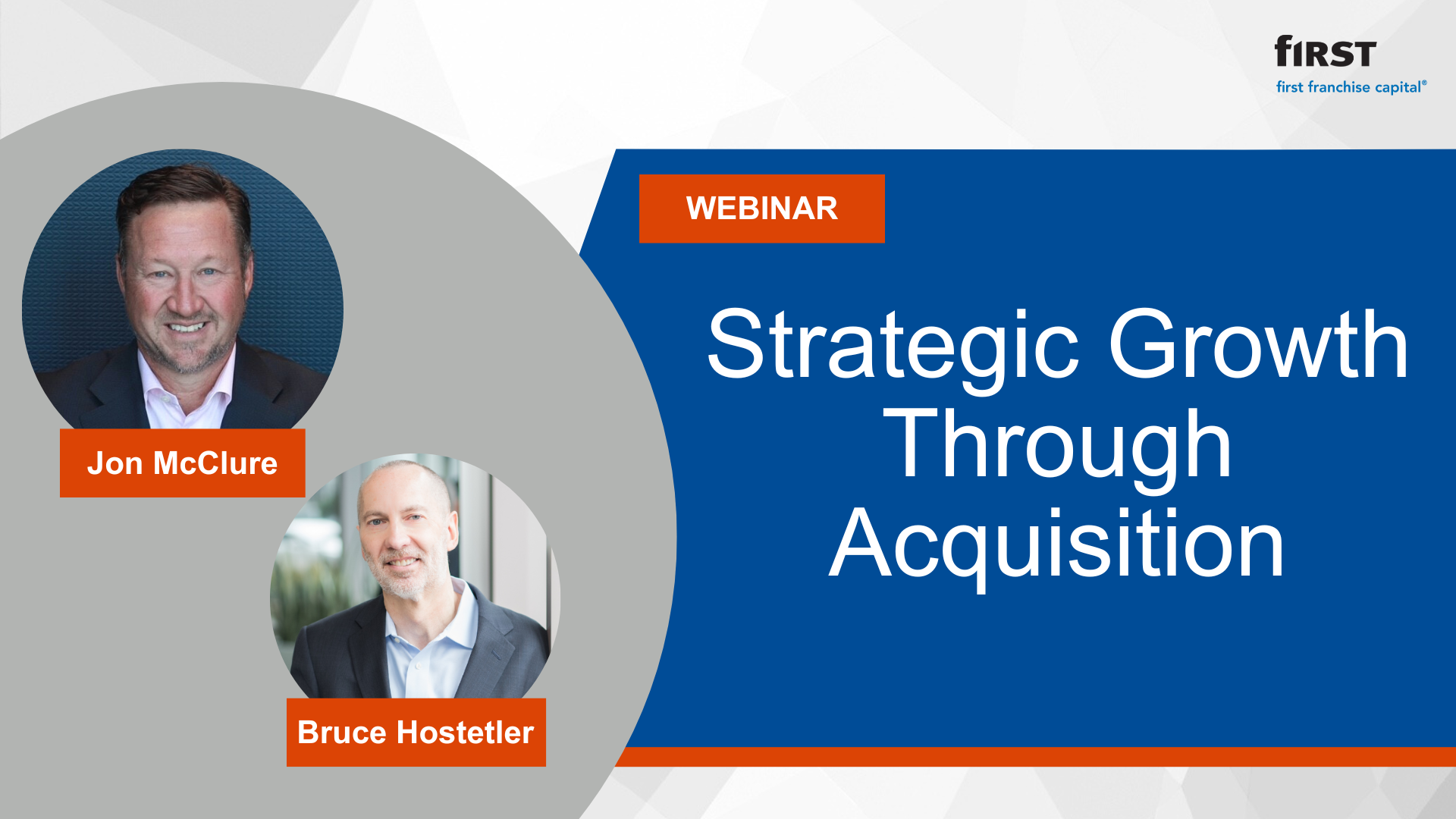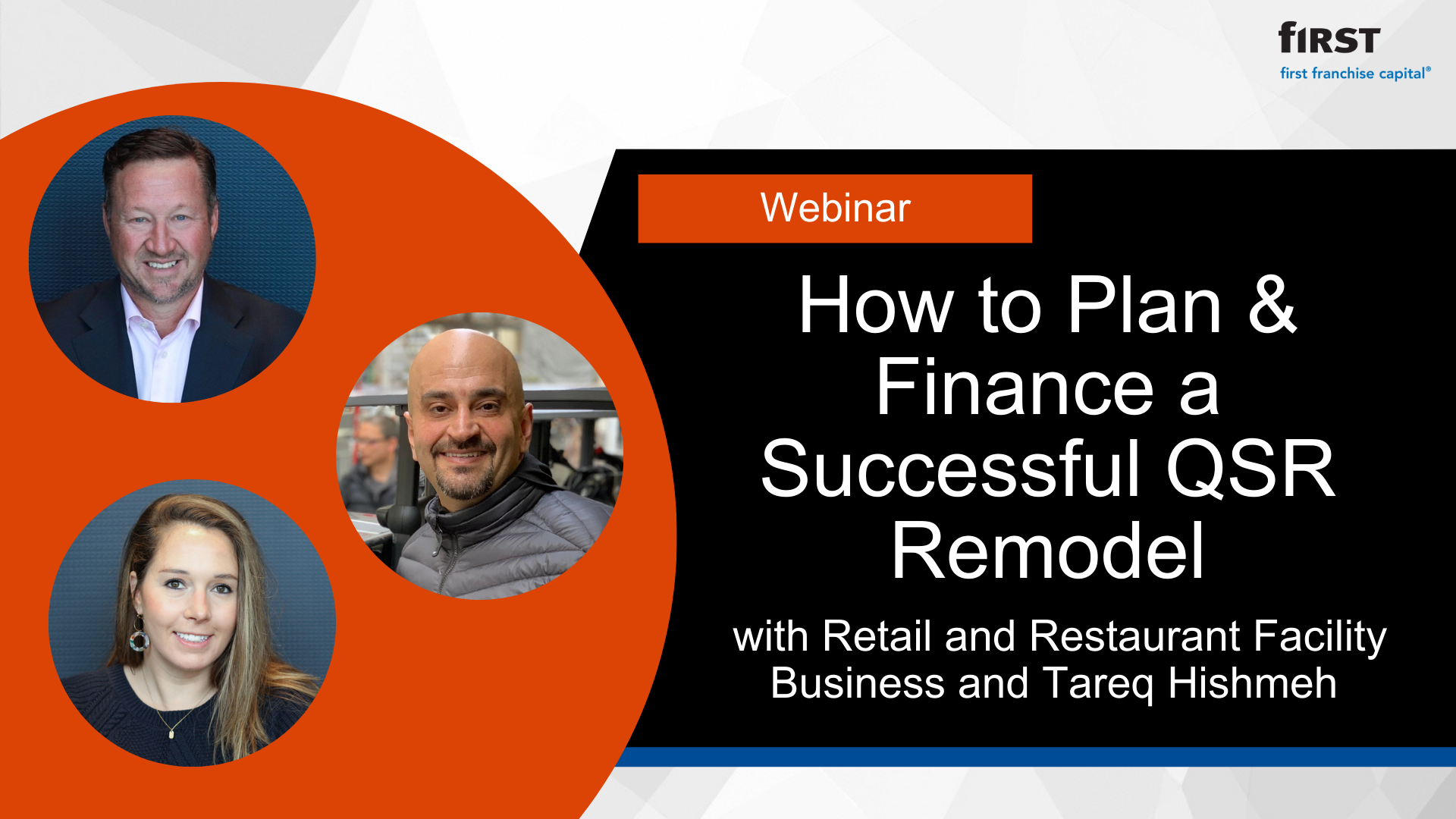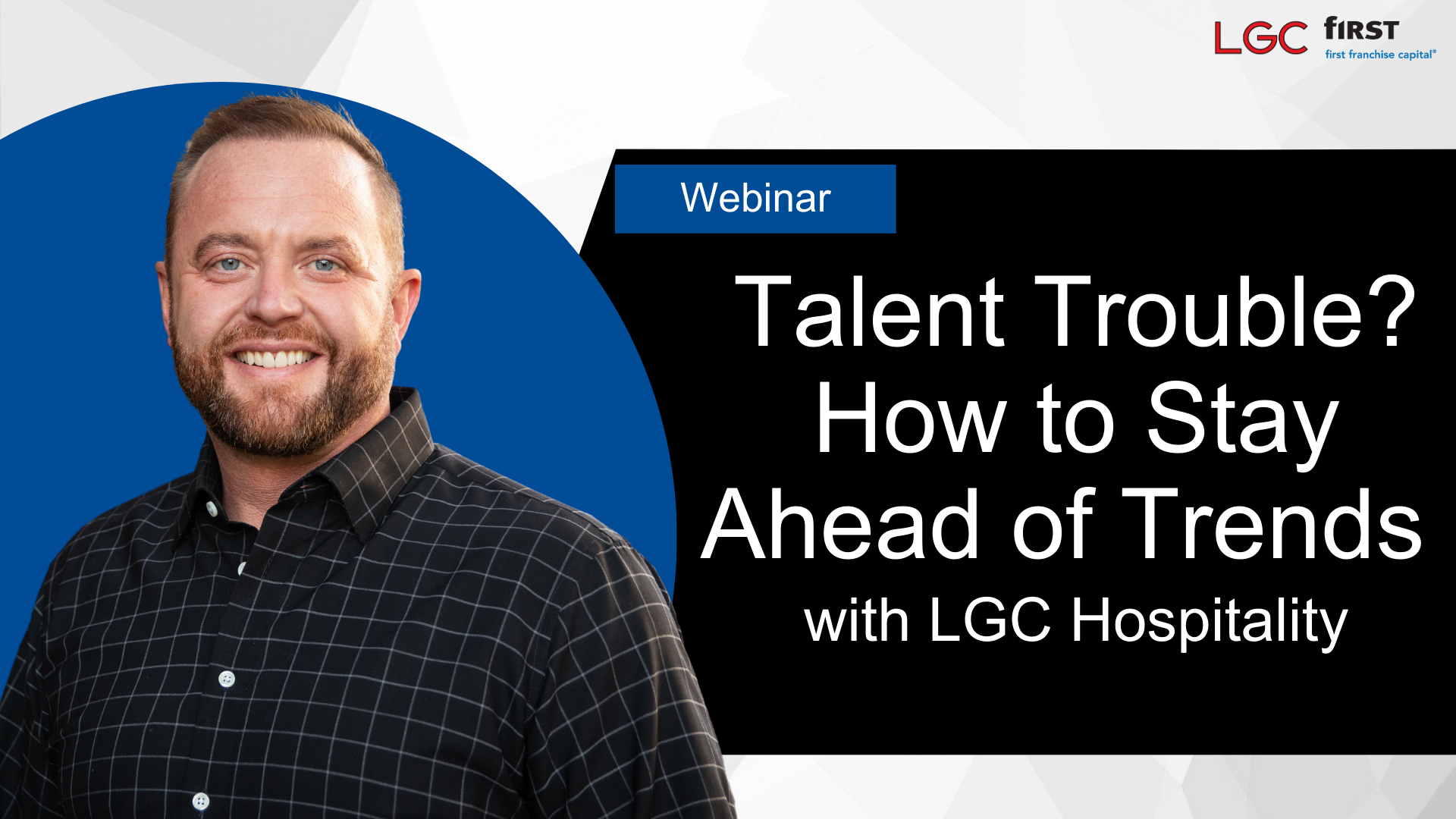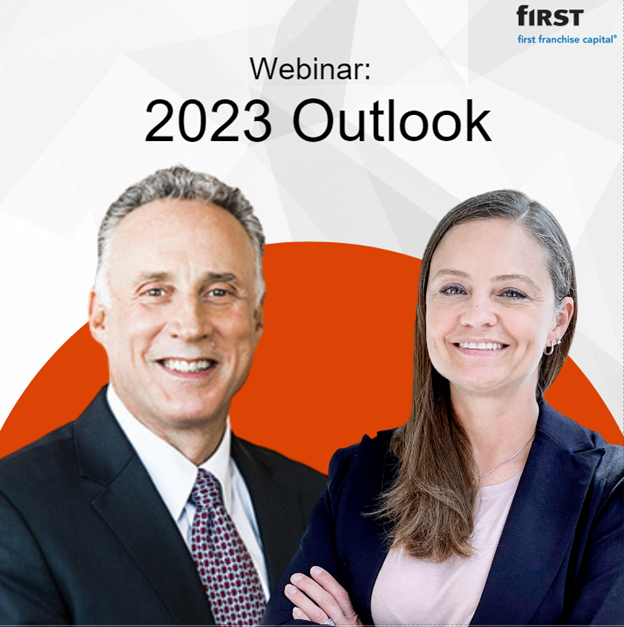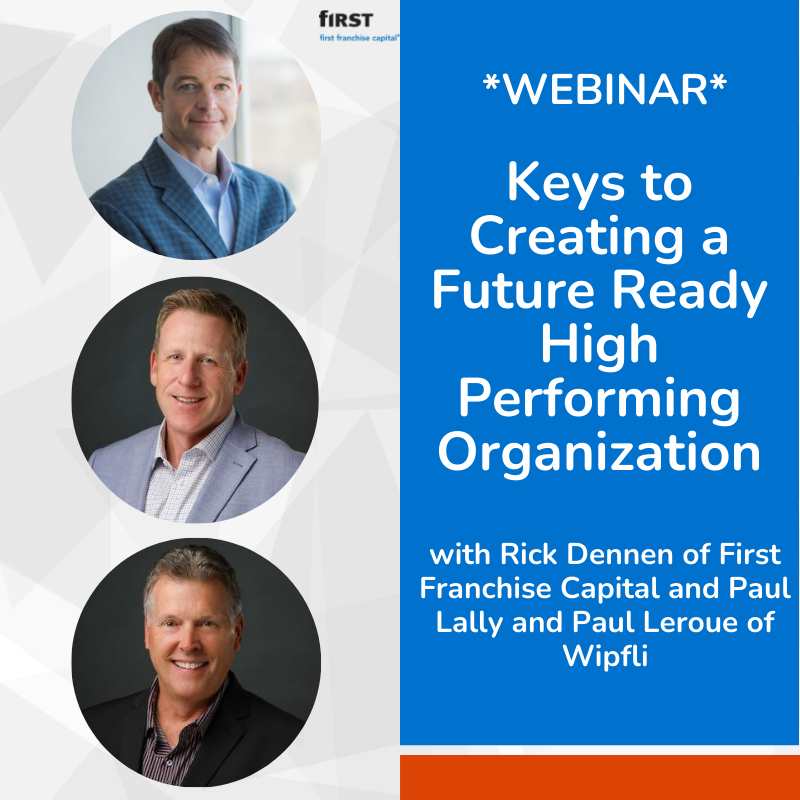Strategic Growth Through Acquisition
- 0.5
- 1
- 1.25
- 1.5
- 1.75
- 2
Bill Nicholson: Hello everyone. Thank you for joining us today as we discuss ways to grow through acquisition. I'm Bill Nicholson with First Franchise Capital. Today, we welcome two of our team members, Bruce Hostetler and Jon McClure. Jon is one of our VPs within First Franchise Sales and has worked directly with clients as they grow through acquisition. Bruce is the Director of Underwriting, and often is working with those clients who have multiple borrowing needs as well. Thank you to those of you who submitted questions as part of your registration. Your questions are going to shape the conversation here today. Be sure to follow our live experience on Twitter @FirstFranCap, and feel free to ask any questions there as well. This webinar is being recorded. And within the next couple of business days, you will receive a followup email with a link to today's webinar recording and our contact information if you want to continue the conversation. Acquisition and succession are the leading reason people come to us for funding. All the businesses we serve are experiencing active acquisition markets. So let's get started. Given the conversations around the continued rate increases and the continued record inflation, this next question easily becomes the first we should address. How do you see a potential recession or downturn in the economy affecting franchise businesses? Bruce, I'll pose this first question to you.
Bruce Hostetler: Sure. I think a lot of it will have to do with what brand, what concept a franchisee is in. I think a sit-down restaurant may be less impacted than, say, a QSR restaurant. I think the national tendency is, if inflation continues to grow, that people who may have been eating in a fine- dining establishment will start to go down to a more value-oriented menu. So I could see that potentially happening. Conversely, I think QSRs could actually do very well. We've seen that in the past in recessions where QSRs again, because of the lower price point actually does quite well during recessionary periods. The things that could be problematic for our borrowers and franchisees would be things like inflation that you mentioned, which has really increased the commodity inputs for franchisees. Also, continuing labor issues, if those continue and probably maybe less so, but product shortages, if those supply chain issues continue as well.
Bill Nicholson: And Jon, you've been in the industry now over two decades, right? So you've seen the ups and downs of the potential economic environment. Anything that you'd like to add?
Jon McClure: Yes, Bruce is right on with the general thought process with our business. Typically, folks will what they call trade down. And that would be from more of a casual dining segment where tips are involved with your experience there as folks continue to tighten their wallets. You actually will see QSRs, typically see a sales comp or store sales increase from prior years. So what generally will happen in a downturn is folks, of course, will gravitate towards their grocery stores, and begin eating more at home. But everyone, as we all know, gets tired of eating at home. And just like in the pandemic, what you saw were folks heading out to the drive-throughs, because that's all that was open. You'll see a similar type situation with people still wanting to get out of the house and they will allocate their dollars towards lower ticket items such as QSR. That's typically what happens.
Bill Nicholson: Thank you, Jon. And I'm going to come back to you for the second question. Is the market good for acquisition growth right now?
Jon McClure: There's a lot to unpack with that question. It depends. And I think Bruce would agree with me there. It depends on which brand you're in. It depends on the economics of the brand. It depends on demographics, and it depends on the multiple that you're able to pick up. And it depends on where the units are if you're an existing franchisee. If you have an opportunity to incrementally add units in your immediate footprint and the seller has not been operating at a high-level, absentee owner, all of those above, sure. And you can negotiate a structure where you're paying a reasonable multiple, and the structure of the financing allows you to take advantage of where rates are right now versus where they're headed, which we'll talk about here in a little bit. If you're able to lock in interest rates now, it could be. However, if you are getting into a brand that you don't know, or if you're getting into a brand that is extremely competitive, we can talk about the chicken arena with all the folks jumping into chicken, and/or if you are wanting to operate stores in a completely different distinct market, the overhead and the GNA, not to mention the oversight and staffing, all of those come into play. So my answer is, it depends.
Bruce Hostetler: I think what I would add to that is demographics with the aging baby boomers does present quite a few opportunities for those boomers who are now looking to liquidate the investments that they've made over the last couple decades. And I think there will be a lot of opportunities as those boomers continue to age. So I think there will be a lot of opportunities presented and just, you got to think about what is the business strategy for those who are making the acquisition. Secondly, Jon, you talk about interest rates and I think that's an important point that should be kept in context. Yeah, rates have risen over the last six, seven months, but they're still really in the historical low range of what we've seen over the last couple of decades. So again, there's pros and cons for the time period that we're at. Obviously, some headwinds that most franchisees are aware of, but there are still going to be a lot of opportunities. And you just got to always be careful about which one you choose.
Bill Nicholson: Have either of you noticed either an acceleration or a slowdown, I guess, due to the economic environment that we've been in the last couple of years with COVID, experienced anything from that aspect that may drive franchisees to either go ahead and pull the trigger today to acquire or to hold off?
Bruce Hostetler: Personally, I've not seen any reluctance. The good operators are still looking for good opportunities. So if there's an opportunity to buy, I think those operators and we've seen those operators take advantage of those situations. Jon, your perspective?
Jon McClure: Yeah. I mean, what I would actually say is the pandemic actually accelerated folks who were contemplating retirement and selling because of how difficult the last couple years have been on them. And as you age in this business and you get into your upper 60s, it is a very challenging business to operate. And so in my opinion, it's actually accelerated some of the selling of you, exiting the business.
Bill Nicholson: And I guess one last expansion question on the original one that we threw out there, are we feeling any pressures from family office, from PE firms? If so, how is that changing the dynamic for franchisees as they look to acquire?
Jon McClure: Good question. I'll go ahead, Bruce, if you want. So it is no secret that PE firms are very in tune with this business. They like the model, they like the returns. And so they are absolute players in this business. The franchisee who owns restaurants, when they're looking to acquire more restaurants, oftentimes are bidding against PE firm. And it makes it challenging given the multiple that a PE firm is willing to accept versus a franchisee. That is definitely a part of this business. It has really recently become pretty rampant in all the brands, not just your main brands that we all know about, but generally across the board in QSR. Yes, family office included in all that. And so, yes, that is definitely a part of this puzzle that franchisees of existing brands are having to deal with.
Bruce Hostetler: And we have had really good relationships in partnerships with PE firms in some of the transactions we've put together. That could be actually an opportunity for a smaller franchisee that wants to take a bite at a bigger opportunity to partner up with a private equity firm. They kind of be the operator and the equity firm comes in with some liquidity.
Bill Nicholson: Okay, Jon, what concepts or organizations within the QSR franchise industry are agreeable to this path of growth?
Jon McClure: They're all agreeable. All the franchise concepts are looking to grow and expand. They are looking for a franchisee to sign a development agreement. When they look to acquire a market from another franchisee, it will always be tagged with a development agreement. That's the franchisor's mantra. That's the income that a franchisor expects as royalty income. So what they are wanting to see is rapid growth and commitment. And again, back to Bruce's comment about PE firms teaming up with a franchisee, they do like that because they know they've got some dry powder and/or a bank, don't forget about banks' involvement here, such as ours, that provide development lines of credit to help you build new units. But to answer your question, all brands are looking to grow and expand and increase their market share.
Bill Nicholson: Thanks, Jon.
Bruce Hostetler: I think the chicken segment, as we mentioned before is really hot right now. A lot of that's new development side, but we are also seeing acquisitions there, kind of the taco segment. Mexican flavored QSRs are also really popular right now. Trying to think, Jon, the burger segment, are you seeing much in the way of new development growth compared to chicken and pizza and taco?
Jon McClure: The burger segment would probably be lacking or lagging behind some of those other segments right now, much more mature with the big brands that we all know of. There's certainly more saturation levels there. And so it's definitely more of those other segments, chicken and pizza. There are other burger brands other than the ones you immediately think of that are certainly growing, but with the name say brands, they're somewhat slower to build new stores today.
Bill Nicholson: Okay. As a buyer or a seller, I'm three years out from a potential acquisition. Jon, Bruce, maybe one of you take the buyer's perspective and the seller's perspective. And tell me what I should be preparing for, or how I should prepare for an acquisition that may be, say, two or three years down the road.
Bruce Hostetler: Maybe I'll start with the seller side. When the seller thinks about presenting this to a buyer, which then has to turn around and present it most likely to a financing sort of one sort or another, they're going to be looking at data and financials. So having that in a good format, high-level reporting, something that's prepared by a CPA will be helpful as the buyer and their financing source tries to dig through and see what makes sense. Also, sometimes an owner may have additional compensation that they're running through, additional expenses, extra cars, maybe some family members on the payroll, those types of things. And it probably makes sense to be able to quickly identify those items for a buyer and the banking partner so that they can make those potential adjustments to cash flow as the buyer is going through this process.
Jon McClure: Yep, exactly. Furthermore, I'm glad you hit on that, eliminating those seller items that they typically run through the P&L, you want to start really gearing up that P&L to be as clean as possible. So exactly what Bruce was saying. From the buy side, it comes down to execution of your existing restaurants before someone like us who provide that kind of financing will be induced to lending to that particular franchisee. We want to see good, solid profit margins, contribution margins, solid rents throughout your P&L. We're going to be looking at what kind of EBITDA you're generating. Especially now, we want to see what the trends are with your cogs and your labor and your traffic counts. With folks raising their prices, which they're having to do today, we want to really see what your traffic counts are doing, and we want to understand your controllables. And we want to really see what you can show us as far as how you are adapting in the new environment. And so when I look at a buyer, a franchisee prospect, I'm expecting to see everything that that person is doing. Is he or her in the restaurants hands-on operating, and/or do they have an admin partner like a lot of folks do have? Just the overall org structure is something I really key in on. And their experience. Has someone been through something like this? I always use the quote, "has their back been against the wall?" I like to deal with people who have really been through the ringer already once, because that shows me they know how to handle it. And lastly, on the buy side, want to make sure they're not biting off more than they can chew, want to make sure they can digest the acquisition, want to make sure they've got the personnel, the bench strength. Folks more times than not will want to go buy a market across the country. And that is, can it be done? Yes. Is it difficult? Yes. So we're looking at all of those items when we're talking to someone about buying additional restaurants.
Bruce Hostetler: I think the point Jon made about the bench strength and the management team is really critical because if this is going to be a large material increase in the number of units, they need to know how they're going to incorporate those new units into their network. The other thing I would say, just kind of big picture as to what Jon was talking about was, if you know you want to grow in the future, now's the time to be developing relationships with your lending partners and potential lending partners because you should understand and ask your lender, what is their appetite for growth? And do they have lending constraints, both in terms of dollar amounts and loan exposure and other financial metric constraints. And those would be good things to be talking about now, before you're under the gun trying to put a deal together. So I think, if you're hearing things from your lender and you think, boy, maybe it's time for me to start talking to another lender, maybe you reach out when you're at one of the industry conferences to someone like Jon and start making those relationships now. Maybe start introducing some of your senior management team, maybe your CPA to Jon and just start building that relationship early.
Bill Nicholson: Yeah. All great points. Speaking from a true professional that is going to approve our transactions. Anytime that we can have a client, especially come in face to face and spend time with us around the same table, tell their story, it certainly gives us a much better and easier path forward, I think here internally.
Bruce Hostetler: And we'd like to go out and visit the franchisee as well and see them in actions, meet their management team. So yeah, we'd love to go out and make those calls as well.
Bill Nicholson: Jon, would you mind maybe sharing an example of a client that you've helped guide through this process again, in the last couple decades that you've been tooling around in the franchise industry? Maybe just a client that sticks out in your mind that just really had a solid acquisition plan, really delivered on that plan, and you've been able to see flourish.
Jon McClure: I do, I have several. I have several. One that really, really sticks out is a friend of mine in the Wendy's business. And when I met this particular person, he had seven Wendy's that were... He had bought out his partner who had done a sale leaseback on all the properties and rents were high, things were not going well. And so he and I set out on a path together. This was about 12 years ago and he was a phenomenal operator, as a matter of fact, in the Dave Thomas Hall of fame, one of the best. And I knew it. And he figured out that I could help him in areas he was not as skilled in and he and I helped grow his Wendy's business to 42 restaurants of which he sold about five years ago. And the dream came true for him. That was really special to me. I helped him, he helped me. It was a very, very solid partnership of helping one another grow and was really able to understand his point of view in how a franchisee really thinks. And that really helped me in a lot of ways, figure out how to guide him to where he eventually got to. So got another Domino's client that we all enjoyed here at our bank, that when I met him, this was about eight years ago, he had about 10, I believe Domino's, and we helped him grow to about 100. And so through various acquisitions, multiple markets, lots of new stores, remodels, offsets, relos, we were able to help him grow to a little bit over 100 stores where he is today. So yeah, we've done some of these with a number of franchisees.
Bill Nicholson: So Jon, I'm going to kick it back to you. What type of multiples are you seeing right now when valuing enterprises? And then, Bruce, we'll kick it over to you to maybe just get a little deeper dive on what you're comfortable with seeing, and maybe how we handle those instances, where we have an individual that may be paying more than what we may be comfortable in financing and maybe what solutions we come up with there.
Jon McClure: Again, it depends. It depends on the brand. It depends on the size of the deal. It depends on the number of restaurants involved. It depends on how many units are in the market. There is a lot. But in general today, and I'll go with the last 12 months, your brands, they're typically going for four and a half to eight times multiples of EBITDA. And so, yes, that is a wide range. I'm aware of that. But for most deals that I've been seeing are generally going around five and a half to six for most brands. And then when you get into a couple of the brands that really command the high multiples, you're approaching six to seven times and even eight for some of these. QSR is a place that just, it pulls people in who want to achieve that dream, being an entrepreneur and continuing to grow, and folks that really are kind of ready to exit corporate America. And so you've seen a lot of that. And a lot of the multiples you see are just a tribute to folks really believing in QSR. And so most of everything that I've seen a couple years has been right in that range.
Bruce Hostetler: And I think with COVID, some QSRs, especially those that had drive-throughs or delivery in place, those really performed very well, at least through second and third quarter of 2021. And that's pushing up the historic cash flows, it's pushing up the models, pushing up the multiples as they look to sell. So I think actually, at least through last year, the multiples will actually continue to creep up.
Bill Nicholson: Okay. If I am looking to leverage my existing network and I am looking to acquire, or potentially finance a future endeavor, what is the best route for me to go to leverage my existing network?
Bruce Hostetler: Yeah. It's really about finding the right balance of equity and debt. A larger amount of debt is going to increase your return on your investment. On the other hand, you don't want to have so much in terms of fixed costs that you can't sleep at night. So we really like to see a mix of good equity into it, and that could be cash equity. It could be what we refer to as implied equity, if you have an existing network that's slowly levered, so that there's multiple ways to get the acquisition done and financed. And we shouldn't forget about seller financing. So if you're looking out to buy an existing network and maybe the multiple's a little high, that's fine, but we might suggest that you try and negotiate a seller financing package and maybe it includes, as you continue to perform well, maybe then the seller gets paid back a little bit faster. So there's multiple ways that we can guide a client as they look to make an acquisition.
Jon McClure: Yeah. Just to add on to that, what we would do, Bill, is we would pull embedded equity out of their existing restaurants. And to back that up just a bit, if you are just getting started, the SBA is always an excellent product to get started with, and they've got a great program. And then we would come in after you've reached four or five restaurants and refinanced that note. And a lot of times pull equity out to put into your sixth and seventh store with a development line of credit. And so from the new store development piece, that's that route, and then, like Bruce said, the seller carry note is often a good tool to use when acquiring more stores along with cash and a reasonable senior debt load.
Bill Nicholson: Finally, Bruce and Jon, can you provide to the listeners today, a little advice on some things they can do to set themselves up for success in a future acquisition, even though the markets today are pretty chaotic?
Jon McClure: Just like in anything else, you've got to be committed. You got to be engaged. And you have to have excellent people working with you. It's no secret. The business of QSR is absolutely built on people and then everything else will follow. And so your folks that are running the drive-throughs are absolutely critical as anyone else, as the folks in the kitchen are, your GM. You've got to have a very solid, committed staff. And what I would tell you is working at a QSR is not easy. It's not for everyone. And you absolutely need to hire the right people who have some kind of interest in food and have good to great people skills.
Bruce Hostetler: I think the other things to just keep in mind is keeping a disciplined approach, both with obviously your existing network, if you have one, and then in the opportunities that you look at, because there will be a lot of opportunities. There is a lot of cash in the market right now to help someone make an acquisition, including banks, banks are very anxious to make loans. I think I would encourage folks to find out how their banks responded with their clients during COVID. Did they help their clients during the pandemic? Did they turn off the faucet and close the vault? How did they react?
Bill Nicholson: And I'll add one lay last point, just to kind of piggyback on, Bruce, what you said, and I know that we kind of lived through this during COVID was, how did the franchisor respond to its franchisees? What level of support when there was really a time that franchisees needed a parent there to be able to help? It was during the last couple years. So it's always important to understand not only how well and how did the banks or financial institutions react, but also the folks that are helping support you in that franchise down line, just ultra important.
Bruce Hostetler: Yeah. Good points.
Bill Nicholson: Well, thank you for joining us today and be on the lookout in your inboxes for a recording of this webinar and our contact information. Have a great day.
Today's Guests

Bruce Hostetler

Jon McClure

